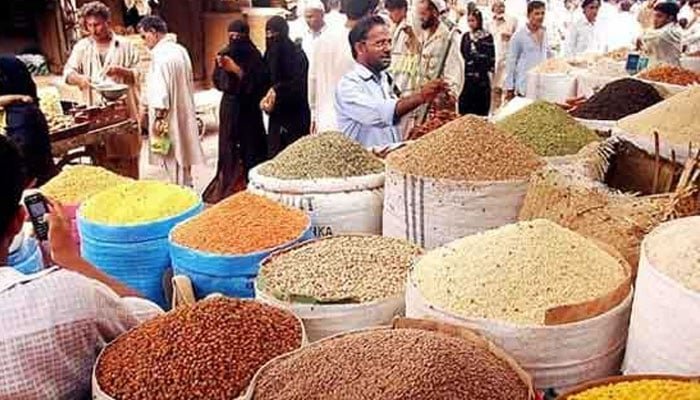The Pakistan Bureau of Statistics has released its weekly report on food and beverage prices, detailing changes in the cost of essential items. According to the statistics, there has been a marginal increase of 0.30% in the overall inflation rate in the country for the past week. The report indicates that the prices of 17 essential items rose during this period.
The latest data from the Bureau of Statistics reveals fluctuations in the prices of essential commodities. Seventeen items experienced a decrease in prices, while another 17 items remained stable throughout the week.
In terms of utilities, electricity charges saw a significant rise of 8.59% in the first three months. Meanwhile, tomatoes experienced a sharp increase of 6.28% within a week, indicating a notable spike in their prices.
Eggs became 3.48% more expensive, and garlic prices surged by 1.04% within a week. In the recent week, beef, potatoes, liquefied petroleum gas (LPG), and energy savers also saw price hikes. On the other hand, sugar prices decreased by 4.47%, and lentils became 2.75% cheaper. Chicken, jaggery, mung lentils, and bananas also experienced a decline in their prices.
The weekly price report reflects the dynamic nature of the market, with some essential items becoming more expensive due to various factors, including demand and supply fluctuations. These changes can impact the daily lives of citizens, particularly those with limited financial resources. Monitoring these fluctuations is essential for both policymakers and consumers to make informed decisions regarding their purchases and expenditures.
Efforts to stabilize prices and ensure the availability of essential items at reasonable rates remain crucial. Governments and relevant authorities need to implement effective measures to curb inflation and create a more stable economic environment for the citizens. Public awareness campaigns about managing household budgets in the face of these fluctuations could also empower consumers to navigate these economic challenges more effectively.



